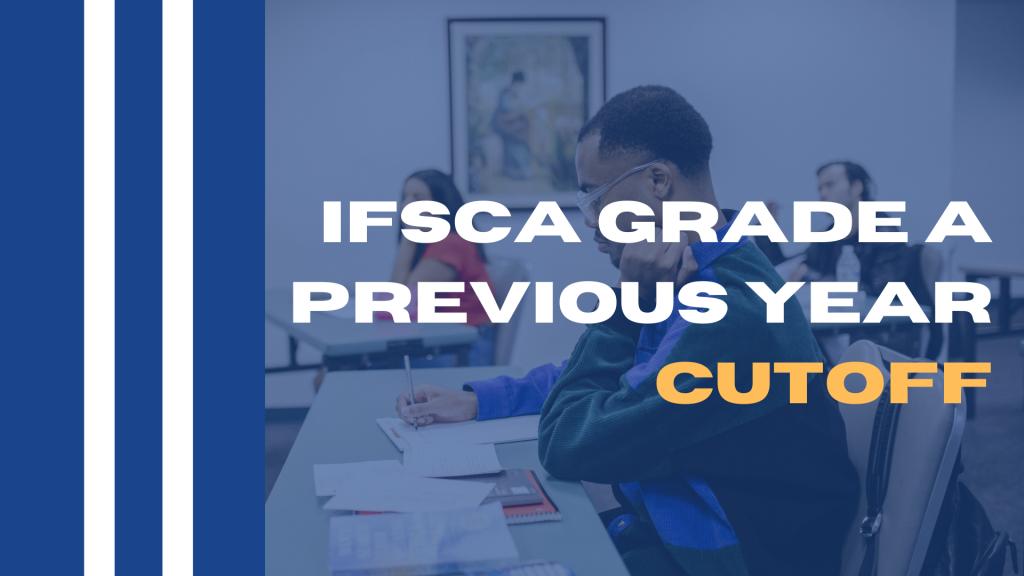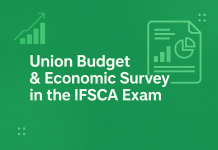If you are preparing for the IFSCA Grade A exam, now that the 2025 notification is out, understanding previous year cutoffs is essential. Cutoff marks help you gauge the competition level, understand trends, and set realistic preparation goals for your IFSCA Grade A 2025 exam. This blog will analyze the IFSCA Grade A cutoffs for the past two years and provide insights on how they can guide your preparation strategy. We will also discuss why cutoffs fluctuate, what factors influence them, and how you can use this information to your advantage. Additionally, we will direct you to ixamBee’s IFSCA Grade A exam resources, including mock tests and study materials, to help you prepare effectively.

What Are Cutoff Marks and Why Are They Important?
Before diving into the analysis, let’s first understand what cutoff marks are and why they matter. Cutoff marks refer to the minimum scores that candidates must obtain to qualify for the next stage of an examination. In competitive exams like IFSCA Grade A, the cutoff varies based on multiple factors, such as the number of applicants, the difficulty level of the exam, and the number of vacancies available.
Understanding previous year cutoffs can help aspirants:
- Assess Exam Difficulty: A higher cutoff usually indicates an easier exam, while a lower cutoff suggests a tougher paper.
- Set Realistic Score Goals: Knowing past cutoffs helps you estimate the score you need to stay competitive.
- Identify Competition Trends: Observing fluctuations in cutoffs over the years allows you to understand whether the competition is increasing.
- Plan Study Strategies Effectively: If cutoffs are consistently high, you may need to strengthen weaker subjects and practice more.
IFSCA Grade A Previous Year Cutoff Analysis
IFSCA Grade A Phase 2 Cutoff for 2024
The following are the cutoff marks for the Phase II exam of the IFSCA Grade A 2024, which determined shortlisting for the interview stage:
General Stream
| Category | Cutoff Marks |
|---|---|
| General (UR) | 69.66 |
| EWS | 62.33 |
| OBC | 68.00 |
| SC | 60.34 |
| ST | 57.66 |
Legal Stream
| Category | Cutoff Marks |
| General (UR) | 75.67 |
| EWS | 75.67 |
IFSCA Grade A Final Cutoff for 2024
The final cutoff marks, including the Phase II exam and interview, are as follows:
General Stream
| Category | Cutoff Marks |
| General (UR) | 72.44 |
| EWS | 63.53 |
| OBC | 68.50 |
| SC | 62.75 |
| ST | 56.96 |
Legal Stream
| Category | Cutoff Marks |
| General (UR) | 74.82 |
IFSCA Grade A Cutoff for 2023
The 2023 cutoff was divided into Phase 1 and Phase 2.
Phase 1 Cutoff (Qualifying Marks)
| Paper | Maximum Marks | Minimum Qualifying Marks for All Categories |
| Paper 1 | 100 | 30 (30%) |
| Paper 2 | 100 | 40 (40%) |
| Total | 200 | 80 (40%) |
Phase 2 Cutoff (Shortlisting for Interview)
| Category | Cutoff Marks |
| General (UR) | 59.67 |
| EWS | 59.67 |
| OBC | 59.33 |
| SC | 54.67 |
| ST | 54.67 |
Insights from Previous Year Cutoffs
Now that we have examined the cutoff marks, let’s analyze the trends and key takeaways from these numbers.
- Increase in Cutoffs (2023 vs. 2024):
- The cutoffs in Phase II for 2024 were generally higher compared to 2023, indicating tougher competition or an easier paper.
- In General Stream (UR), the cutoff increased from 59.67 (2023) to 69.66 (2024), marking a significant jump.
- Legal Stream vs. General Stream:
- The Legal Stream cutoffs were consistently higher than the General Stream cutoffs in both years.
- In 2024, the Legal Stream UR cutoff was 75.67 in Phase 2, while the General Stream UR cutoff was 69.66.
- Final Cutoffs Show a Narrow Margin:
- The final cutoffs (after interviews) indicate that interview performance plays a crucial role in determining selection.
- For UR candidates, the final cutoff in 2024 was 72.44 in the General Stream and 74.82 in the Legal Stream, which shows a small increase from Phase 2 scores.
- Category-wise Differences:
- Reserved categories (SC/ST/OBC/EWS) had relatively lower cutoffs compared to General (UR).
- The difference in cutoffs between UR and reserved categories highlights the importance of preparation strategies tailored to your category.
How to Use This Information for Your IFSCA Grade A Exam Preparation
Now that we understand the significance of cutoffs, let’s discuss how you can prepare effectively to score well above the required marks.
1. Understand the Exam Pattern and Syllabus Thoroughly
The first step in your preparation should be to familiarize yourself with the exam pattern and syllabus. This will give you clarity on what topics to focus on and how to distribute your study time. Go through the official syllabus and identify the weightage of each subject. Prioritize topics that have a history of being frequently tested.
2. Create a Structured Study Plan
A well-organized study plan is essential for success. Break down your preparation into phases:
- Phase 1: Focus on conceptual clarity and cover all subjects systematically.
- Phase 2: Start taking topic-wise quizzes and sectional tests.
- Phase 3: Revise and take full-length mock tests to analyze your performance.
Set daily and weekly goals to track your progress and adjust your strategy accordingly.
3. Focus on High-Weightage Topics First
From the cutoff analysis, it’s evident that some sections contribute more towards overall performance. Identify these high-scoring areas and master them first. Subjects like Finance, Economics, and Legal Aspects hold great importance in the IFSCA exam. Work on improving speed and accuracy in these sections.
4. Practice with ixamBee’s Mock Tests and Previous Year Papers
Regular practice is key to clearing the IFSCA Grade A exam. Solve previous year papers to get an idea of the question pattern and difficulty level. Take ixamBee’s mock tests, which simulate the real exam environment and help build confidence. Analyze your performance after each test to identify weak areas and improve them.
5. Improve Time Management and Accuracy
Many candidates fail to clear the exam due to poor time management. Work on solving questions within the given time limits. Develop strategies to eliminate incorrect options quickly in objective questions. For the descriptive section, practice writing well-structured answers within a set time frame.
6. Stay Consistent and Stay Motivated
Consistency is key to success in any competitive exam. Set a routine and stick to it. Join online forums, discussion groups, or study with peers to stay motivated. Keep yourself updated with the latest developments in finance, banking, and regulatory sectors, as these areas are crucial for IFSCA Grade A aspirants.
Conclusion
The IFSCA Grade A exam is highly competitive, and understanding previous year cutoffs can provide a strategic advantage. The rising trend in cutoffs highlights the need for rigorous preparation, time management, and targeted practice. By analyzing the trends, setting realistic goals, and leveraging ixamBee’s expert resources, you can enhance your chances of success.
At ixamBee, we specialize in providing comprehensive online courses for government exams and online courses for government jobs. Our expertly designed courses for government jobs cater to a wide range of upcoming government exams. Whether you’re preparing for specific courses for government exams or seeking general guidance, ixamBee offers the resources like Beepedia previous year papers, SSC CGL, SSC CHSL, SSC MTS and other mock tests to succeed in exams like RBI Grade B, SEBI Grade A, NABARD Grade A, RRB NTPC, SSC MTS, NIACL Assistant, and more.
Also Read:
SEBI Grade A Legal Preparation Strategy for 2025
IBPS PO Year on Year Cutoff: A Complete Guide
Most Important Examinations for Law Graduates in India















